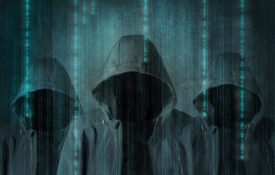-

To Boost STEM Graduation Rates, Focus on What You Can Control
Interventions that encourage students to attribute academic failure to controllable factors could help boost graduation rates.
-

APS Backgrounder Series: Psychological Science and COVID-19: Conspiracy Theories
What does psychological science have to say about conspiracy theories, especially during the COVID-19 pandemic? [May 27, 2020]
-

New Content From Current Directions in Psychological Science
A sample of articles on mobile eye-tracking to study behavior in real-world environments, a framework for understanding cooperation, the construction of social networks, dynamic personality structures, and personalized computational models of reading acquisition and dyslexia.
-
5 Signs You’re Overthinking A Career Decision
Do you experience chronic indecision when it comes to your career? According to a study by the Journal of Abnormal Psychology, overthinking or ruminating can take a serious toll on your well-being. Overthinking wastes time and drains precious energy. Experts agree that thinking too much can negatively impact job performance, cause anxiety, or even lead to depression. Psychologist Barry Schwartz coined the phrase “Paradox of Choice” to describe his findings that, while freedom of choice allows us to achieve objectively better results, it also leads to greater indecision, paralysis, and dissatisfaction.
-
3 Experts Explain How You Cab Combat Quarantine Fatigue
AS THE PANDEMIC LINGERS, and the months stack up, Americans are increasingly willing to venture out of their homes — even if where they live is technically still under lockdown. According to a University of Maryland research project that leverages anonymous cell phone data to track social distancing compliance, last week social distancing declined by three percent. That project’s lead researcher, Lei Zhang, says this indicates a “premature loosening of social distancing behavior” and is driven by “quarantine fatigue.” Even if you personally haven’t experienced quarantine fatigue, you’ve likely encountered sentiments attached to the experience.
-
How To Calm Quarantine Frustrations While Remote Working
The types of news outlets, TV shows, movies, magazines, and newspapers we consume on a regular basis frame our perspective and impact our mental health and well-being. Long-standing research shows that chronic TV watchers and news followers have elevated fears because the events they observe start to seem as if they are happening outside their front door. And once we consume too much chronic, negative, and catastrophic information, we can’t put the toothpaste back in the tube. It stays in our minds, forming a template for how we think, feel, and respond to seismic events such as the COVID-19 pandemic. Fortunately, scientists have found an antidote: watching nature documentaries. ...

